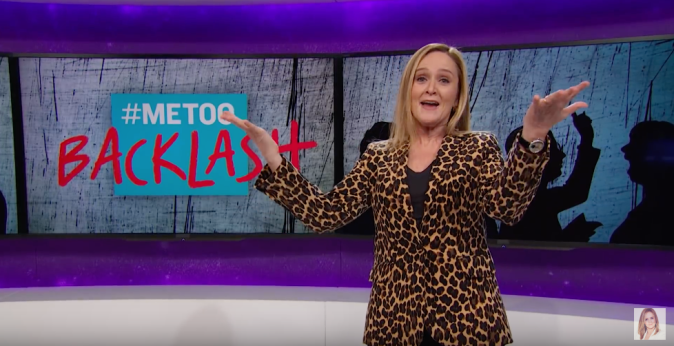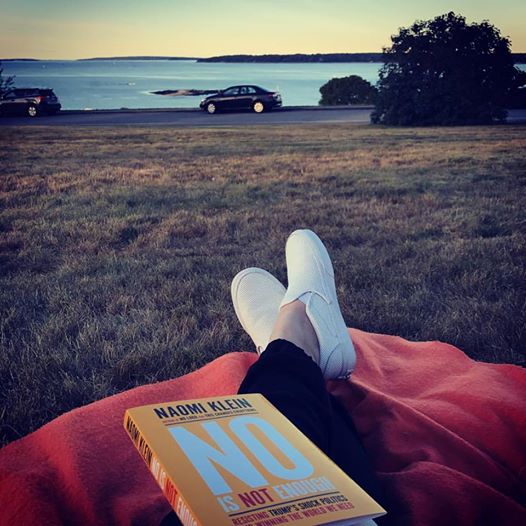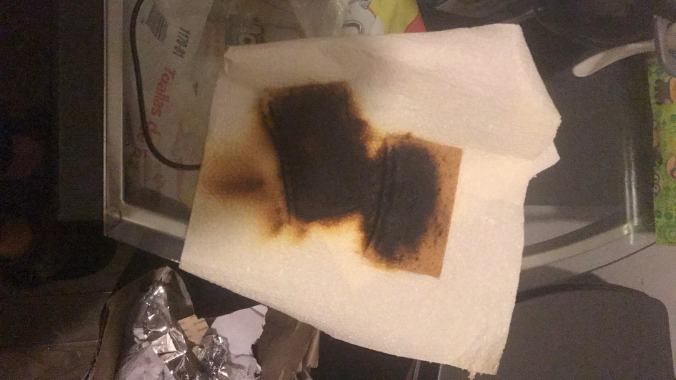
Actor Aziz Ansari (Photo: David Shankbone/Flickr/cc)
Hi, Internet friends…
As #MeToo started to take off last October, I volunteered to cover it for the website that I write for daily, Common Dreams. Since then, our site has published multiple stories, some of which I have contributed to or written.
But in the aftermath of Babe.net‘s recent viral piece about Aziz Ansari, I have been struggling with some seemingly contradictory feelings about the courses that the #MeToo movement and the articles about it have taken.
Although I am not yet ready to publicly hash out my complex reactions, I have compiled a reading list of pieces—plus a video response. Please feel free to comment or direct message me with your article suggestions about Grace’s story or the #MeToo movement more broadly.
“I went on a date with Aziz Ansari. It turned into the worst night of my life” by Katie Way for Babe.net
tl;dr: “Grace is a 23-year-old Brooklyn-based photographer, then aged 22. We are not using her real name to protect her identity because she is not a public figure…. The date didn’t go as planned. The night would end with Grace in an Uber home, in tears, messaging her friends about how Ansari behaved. Babe spoke to the first friends she told about it, and reviewed the messages on her phone.” The story provides a play-by-play of their sexual encounter, during which Grace “says she used verbal and non-verbal cues to indicate how uncomfortable and distressed she was.” Ansari responded with a statement that Babe.net published in full. He acknowledged the “sexual activity, which by all indications was completely consensual,” as well as a text message exchange that occurred following their date, and expressed his continued support for the movement.
“The poorly reported Aziz Ansari exposé was a missed opportunity” Jill Filipovic for The Guardian
tl;dr: “It was bound to happen. In the midst of women sharing stories of harassment and assault via the #MeToo movement, and a brewing backlash of hand-wringers wondering if women have perhaps gone too far, it was only a matter of time before a publication did us the disservice of publishing a sensational story of a badly behaved man who was nonetheless not a sexual assailant…. we need to talk more about how pervasive power imbalances benefit men and make sex worse for women. But instead of telling this particular story with the care it called for, it was jammed into a pre-existing movement grounded in the language of assault and illegality…. The language of “a bad hookup” fails to capture the unequal power dynamics and the deep sense of disorientation and betrayal that comes when someone treats you as a hole rather than a person. Nor does it adequately measure the weight of centuries of misogyny that have shaped our most intimate moments…. it’s up to us to lead the way in confronting the private, intimate interactions that may be technically consensual but still profoundly sexist.”
“Babe, What Are You Doing?” by Julianne Escobedo Shepherd for Jezebel
tl;dr: “[A] side effect of the tidal wave of sexual assault and harassment reporting since October is that, having been long confined to explicitly feminist outlets, reporting about sexual impropriety is, all of a sudden, considered general-interest prestige reporting…. Because of the amateurish way the Babe report was handled (her wine choices; her outfit), and the way it was written with an almost prurient and unnecessarily macabre interest in the minute details of their interaction (“the claw”), it left the subject open to further attacks, the kind that are entirely, exhaustingly predictable…. At its core, Babe’s piece about Grace is important, but the inexperience evident in the execution of the piece did a disservice to the topic—and it’s a shame, because its execution obscures an extremely valuable, timely conversation at a time when it seems finally possible to have it in a public forum.”
“On Aziz Ansari And ‘Bad Sex’” by Katie Anthony for Bust
tl;dr: “The allegations against Ansari open up the next, harder, messier chapter in the #MeToo movement…. I read Grace’s story with amusement, embarrassment, and creeping unease…. Grace’s story is common. It’s so common that I don’t have to imagine it because I remember it. I laugh about it without smiling. It’s the story of so much bad sex. And when I hear that bad sex described as a sexual assault, it forces me to reexamine my own history…. I believe her; I don’t agree with her. I’m telling you this not because I think she is wrong, but because I think I am…. Women have already taken enough of a painful personal inventory to be able to say #metoo; I am not eager to go back over what I’ve come to comfortably accept as “crappy hookups,” or “shitty sex,” and come to realize that yes, that was sexual assault, too…. People are quick to label sex crimes as deviant or aberrant, but the truth is that sexual violence is socialized into us. Men are socialized to fuck hard and often, and women are socialized to get fucked, look happy, and keep quiet about it. Aziz Ansari has been socialized. And if we don’t like the way socialized men do sex, then we need to take a hard look at our society, friend.” [emphasis added by Katie Anthony]
“No, Aziz Ansari’s accuser is not breaking up #MeToo—the divisions have been there all along” by Natasha Lennard for The Intercept
tl;dr: “The rallying cry of Women’s March found expression in the so-called #MeToo movement. Women were grabbing back the narrative around sexual violence, harassment, and patriarchal oppression, grabbing back for the power that these scourges have taken from us. Now, though, in 2018, the anniversary of the Women’s March comes at a watershed moment. Questions are being raised about whether today’s would-be feminist movement grabbed back “too far.” It came to a head with this week’s fierce debates around accusations against Aziz Ansari…. This young accuser, many in the elite media said, was putting the whole #MeToo movement at risk…. #MeToo is not suddenly cracking up. Instead, the rallying cry is revealing itself to represent different and perhaps incompatible ideas of feminism and feminist strategy—not quite a united front. To frame the emergent debate as a question of whether women have gone “too far” is to gloss over deeper fractures underlying the putatively big-tent women’s movement. The Ansari accusation did not create these fissures, but the debates it birthed have revealed where the fractures lie, along ideological, generational, class, and political lines…. Invocations of “empowerment” are of little use to these women who face harassment and sexual violence in workplaces, relationships, and situations they feel structurally, emotionally, or financially unable to walk away from—something the attacks against Ansari’s accuser seem to miss.”
“#MeToo Backlash” segment on Full Frontal with Samantha Bee
###
Updates
I have decided to discontinue my weekly roundup posts for now, but to read my recent work, check out my author page on commondreams.org.
ALSO! As many of you may know, last year I fact-checked a book. Soon, it’ll be available for purchase, but you can pre-order a copy of The Making of a Dream on Amazon.













